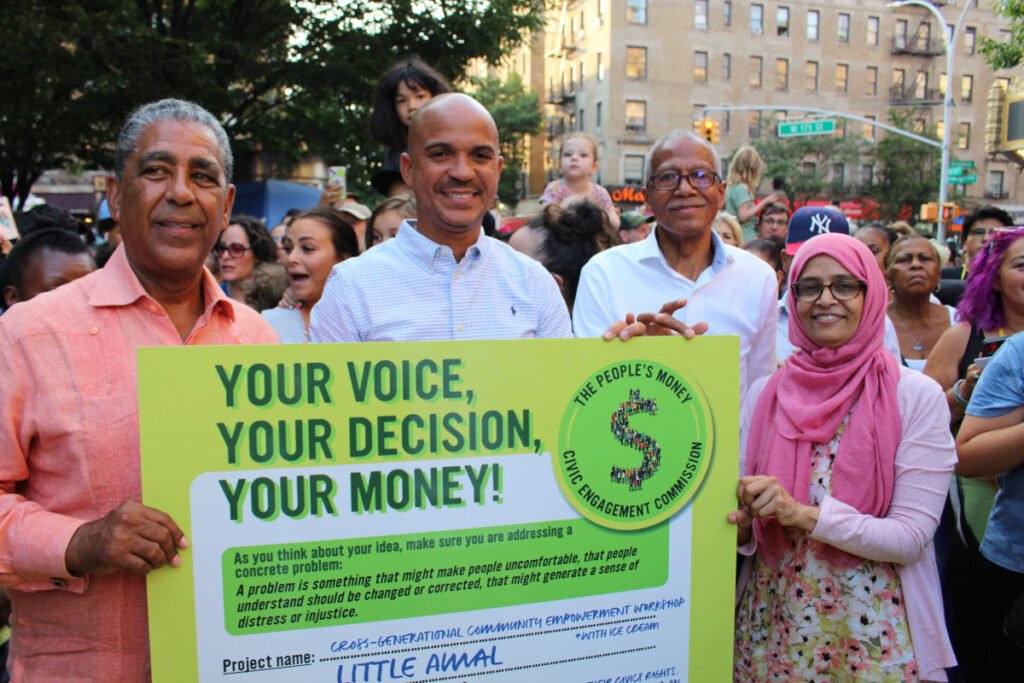In a bid to foster transparency, inclusivity, and community involvement, city officials have announced a series of citywide budget engagement sessions scheduled for May and June.
These sessions mark a significant step towards enhancing citizen participation in the budgetary decision-making process, ensuring that the allocation of resources aligns with the diverse needs and priorities of the population.

With the challenges posed by the ongoing economic landscape and the evolving demands of urban living, these sessions offer a platform for residents to voice their concerns, offer insights, and contribute to shaping the fiscal policies that impact their daily lives.
Understanding the Importance of Budget Engagement
Budget engagement serves as the cornerstone of accountable governance, enabling citizens to have a direct say in how public funds are allocated and utilized.
By actively involving residents in the budgetary process, cities can cultivate a sense of ownership and responsibility among the populace, fostering trust and collaboration between government institutions and the community.
Moreover, inclusive budget engagement ensures that the needs of marginalized and underrepresented groups are adequately addressed, promoting equity and social justice within the urban landscape.
Key Objectives of the Engagement Sessions
The forthcoming budget engagement sessions are designed to achieve several key objectives:
Soliciting Feedback: City officials are keen to gather feedback from residents regarding their priorities, concerns, and aspirations for the allocation of public funds.
Through open dialogue and constructive discourse, policymakers aim to identify areas of consensus as well as areas requiring further attention and refinement.
Promoting Equity and Inclusion: Recognizing the diverse needs and perspectives within the community, the engagement sessions will prioritize equity and inclusion, ensuring that all voices are heard and valued.
Special efforts will be made to engage historically marginalized groups, including low-income households, immigrants, and communities of color, to ensure their concerns are given due consideration.
Enhancing Accountability: By fostering greater transparency and accountability in the budgetary process, these sessions aim to build trust between citizens and government institutions.
By holding decision-makers accountable for their budgetary choices, residents can play a proactive role in shaping the future trajectory of their city.
Engagement Format and Structure
The citywide budget engagement sessions will adopt a multifaceted approach to facilitate meaningful participation and dialogue among residents.
Key features of the engagement format include:
Public Forums: These interactive forums will provide residents with an opportunity to engage directly with elected officials, department heads, and budget experts.
Participants can pose questions, share perspectives, and offer suggestions on budgetary priorities and trade-offs.
Online Platforms: In addition to in-person sessions, the engagement process will leverage online platforms to reach a broader audience and accommodate those unable to attend in person.
Virtual town hall meetings, webinars, and digital feedback mechanisms will enable residents to participate remotely and contribute to the conversation from the comfort of their homes.
Community Workshops: To ensure grassroots engagement and localized input, the engagement sessions will include a series of community workshops hosted in various neighborhoods throughout the city.
These workshops will provide residents with a platform to discuss neighborhood-specific concerns and advocate for targeted investments in infrastructure, services, and amenities.
Youth Engagement: Recognizing the importance of youth voices in shaping the future of the city, special efforts will be made to engage young residents through school outreach programs, youth councils, and interactive workshops.
By empowering the next generation of leaders, the engagement process seeks to cultivate a culture of civic participation and responsibility.
Navigating Fiscal Challenges and Opportunities
As cities grapple with the economic fallout of the COVID-19 pandemic and the imperative to address pressing social and environmental challenges, the budget engagement process takes on added significance.
Participants will have the opportunity to weigh in on critical issues such as affordable housing, public transit, environmental sustainability, public safety, and economic recovery.
Moreover, the engagement sessions will provide a platform to explore innovative funding mechanisms, public-private partnerships, and creative solutions to complex urban problems.
By harnessing the collective wisdom and creativity of residents, cities can identify new opportunities for revenue generation, cost savings, and efficiency improvements.
Conclusion: Shaping the Future Together
The citywide budget engagement sessions represent a vital opportunity for residents to actively participate in the governance of their communities, shaping the policies and priorities that will define the future trajectory of their city.
By fostering transparency, inclusivity, and accountability, these sessions aim to strengthen the social fabric of our urban landscape, empowering residents to become active stewards of their shared destiny.
As we navigate the myriad challenges and opportunities facing our cities, let us seize this moment to come together, bridge our differences, and work towards a future that reflects the values and aspirations of all residents.
Through collaborative engagement and collective action, we can build more resilient, equitable, and vibrant communities for generations to come.